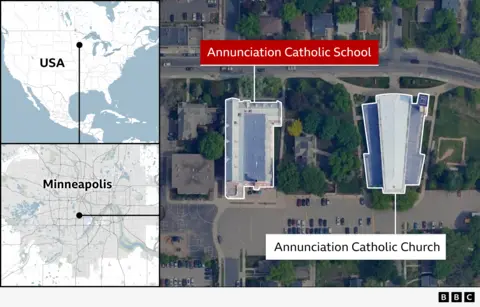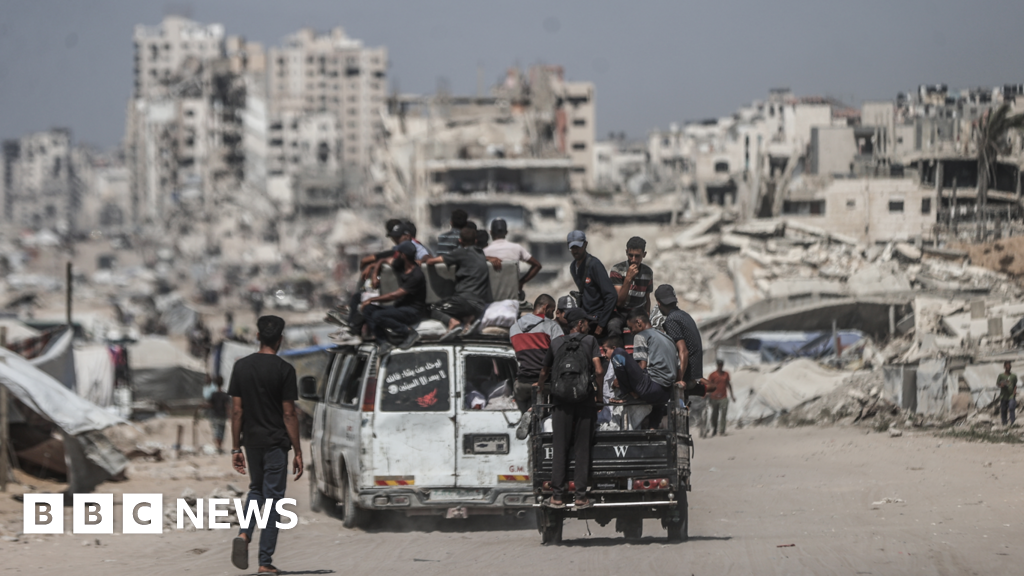Pope Leo XIV is gearing up for a potential journey to Lebanon later this year, marking what may be his first international undertaking since his election as the head of the Catholic Church in May. Archbishop Paul Sayah, who serves as deputy to Lebanon's leading Catholic authority, revealed to the BBC that the Vatican is currently "studying" the details of the trip, although official dates have not yet been confirmed.
This visit holds special significance for Pope Leo, the first American pontiff, who has consistently called for peace in the Middle East and the fostering of interfaith relationships. Lebanon stands out as a multicultural and multi-religious nation that embodies dialogue, with both Muslims and Christians coexisting harmoniously. "Lebanon is a rare environment where individuals respect each other's beliefs," Bishop Sayah emphasized, highlighting the message this visit would send to the broader region.
The anticipation surrounding the papal destination reflects a tradition where early papal trips often set the tone for their tenure. For instance, former Pope Francis's initial journey to Lampedusa in 2013 underscored his commitment to migration issues and the marginalized. Over the past twelve years, Francis traveled to 68 countries, frequently highlighting regions on the fringes where the Church's presence was most needed.
The historical weight of a papal visit to Lebanon is noteworthy, given the country's home to over two million Catholics amid its diverse religious landscape. It also places Pope Leo in proximity to current conflicts, such as the war in Gaza and the ongoing challenges within the Israel-Palestine issue. Bishop Sayah commented, "While many engage with Israel, it often feels like such voices go unheard. The Pope's presence and concerns may indeed shake things up."
Pope Leo has already made waves with his outreach initiatives to other faith communities. His first significant meeting after being elected was with an interfaith delegation, where he applauded the importance of the "Jewish roots of Christianity" and the growing bonds between Catholics and Muslims. His calls for individuals of all faiths to "reject war and embrace peace" are resonating as he prepares for this monumental journey.
If realized, this trip would follow in the footsteps of previous popes John Paul II and Benedict XVI, who are both remembered for their powerful messages promoting peace and coexistence. Earlier this month, Pope Leo remarked on the fifth anniversary of the devastating Beirut port explosion, expressing solidarity with Lebanon, which he described as "beloved and suffering," reaffirming that the country remains in the Church's prayers.
This visit holds special significance for Pope Leo, the first American pontiff, who has consistently called for peace in the Middle East and the fostering of interfaith relationships. Lebanon stands out as a multicultural and multi-religious nation that embodies dialogue, with both Muslims and Christians coexisting harmoniously. "Lebanon is a rare environment where individuals respect each other's beliefs," Bishop Sayah emphasized, highlighting the message this visit would send to the broader region.
The anticipation surrounding the papal destination reflects a tradition where early papal trips often set the tone for their tenure. For instance, former Pope Francis's initial journey to Lampedusa in 2013 underscored his commitment to migration issues and the marginalized. Over the past twelve years, Francis traveled to 68 countries, frequently highlighting regions on the fringes where the Church's presence was most needed.
The historical weight of a papal visit to Lebanon is noteworthy, given the country's home to over two million Catholics amid its diverse religious landscape. It also places Pope Leo in proximity to current conflicts, such as the war in Gaza and the ongoing challenges within the Israel-Palestine issue. Bishop Sayah commented, "While many engage with Israel, it often feels like such voices go unheard. The Pope's presence and concerns may indeed shake things up."
Pope Leo has already made waves with his outreach initiatives to other faith communities. His first significant meeting after being elected was with an interfaith delegation, where he applauded the importance of the "Jewish roots of Christianity" and the growing bonds between Catholics and Muslims. His calls for individuals of all faiths to "reject war and embrace peace" are resonating as he prepares for this monumental journey.
If realized, this trip would follow in the footsteps of previous popes John Paul II and Benedict XVI, who are both remembered for their powerful messages promoting peace and coexistence. Earlier this month, Pope Leo remarked on the fifth anniversary of the devastating Beirut port explosion, expressing solidarity with Lebanon, which he described as "beloved and suffering," reaffirming that the country remains in the Church's prayers.



















